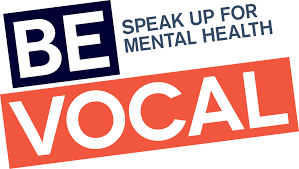Mental health advocacy is a growing field that helps to break the stigma around mental illness. It is a vital part of the overall mental health system. And it can be very rewarding for advocates.
This article will provide an overview of what mental health advocacy is, what an advocate does. And some of the challenges they may face. We will also explore growth opportunities in this field. And offer advice on how to become a mental health advocate.
Contents
Understanding Mental Health Advocacy

Mental health advocacy is the act of working to improve the quality of life for people with mental illness. This includes:
- Promoting awareness and understanding of mental health issues,
- Fighting discrimination, and
- Providing support and resources to those who need it.
Mental health advocates may work in a variety of settings, including hospitals, clinics, schools, or community organizations. In this way, mental health advocates play a vital role in our society. Without them, many people would be left without a voice or any support.
What Are Types Of Mental Health Advocates?
There are three main types of mental health advocates:
Policy Advocates: Policy advocates work to change laws and policies that affect people with mental illness. They may lobby legislators, write letters to the editor, or speak at public hearings.
Service Providers: Service providers offer direct services to people with mental illness, such as counseling or case management. They may also work to create and improve programs and services for those with mental illness.
Consumer Advocates: Consumer advocates are people who have experience with mental illness themselves. They often provide support and resources to others who are struggling, as well as educate the public about living with a mental illness.
What Does a Mental Health Advocate Do?

Mental health advocates provide support and resources to people with mental illness, as well as their families and caregivers. They may work in a variety of settings, including hospitals, clinics, schools, or community organizations. The specific duties of an advocate vary depending on their workplace and the needs of their clients. However, some of the most common tasks include:
Promoting awareness
One of the most important roles of a mental health advocate is to promote awareness and understanding of mental health issues. They do this by educating people about the facts and myths around mental illness, speaking out about the importance of mental health, and sharing their personal stories.
Fighting discrimination
Mental illness still carries a lot of stigmas, which can lead to discrimination against those who have it. Advocates work to break down these barriers and fight for the rights of people with mental illness.
Raising awareness
One of the most important roles of a mental health advocate is to promote awareness and understanding of mental health issues. They do this by educating people about the facts and myths around mental illness, speaking out about the importance of mental health, and sharing their personal stories.
Providing practical support
In addition to raising awareness, advocates also provide practical support to those who need it. This may include connecting people with resources and services, providing emotional support, or advocating for them in court or other legal proceedings.
Breaking down barriers
Mental illness still carries a lot of stigmas, which can lead to discrimination against those who have it. Advocates work to break down these barriers and fight for the rights of people with mental illness.
Sharing personal stories about mental illness
Advocates often share their personal stories about mental illness to break the stigma around it. This can be an incredibly powerful way to educate others and show them that they are not alone.
What Are Growth Opportunities In Mental Health Advocacy?

The field of mental health advocacy is growing rapidly, and there are many growth opportunities. Some of the areas where advocates can make a difference include:
Policymaking: Policymakers are always looking for new information about mental health, and advocates can provide valuable insights into the needs of people with mental illness.
Program Development: Advocates are in a unique position to develop programs that meet the specific needs of their community or workplace.
Community Outreach: Many advocates work to raise awareness about mental health issues in their local community. This can involve organizing events, speaking to groups, or writing articles.
Research: Advocates often have first-hand experience with the challenges faced by people with mental illness. They can use this knowledge to conduct valuable research on a variety of topics related to mental health.
Becoming a Mental Health Advocate

There are many ways to become a mental health advocate. The most important thing is to have a passion for the work and be willing to fight for those who need it. There are no specific qualifications required, but some experience in social work or counseling may be helpful. It is also important to have strong communication and advocacy skills.
Experience in social work or counseling: Many mental health advocates have experience in social work or counseling. This can be helpful, as they will already have some knowledge of the issues faced by people with mental illness.
Passion for the work: The most important thing for any advocate is to have a passion for the work. They need to be dedicated to fighting for the rights of those who need it most.
Strong communication and advocacy skills: Advocates need to be able to communicate effectively with others and fight for the rights of those who need it.
What Personality Types Are Suitable For Mental Health Advocacy?
Mental health advocates come from all walks of life, and no one personality type is suitable for the job. Albeit, advocacy is a challenging but rewarding career, and it requires a lot of dedication and passion. Not everyone is suited for this type of work. The following are some personality traits that are ideal for a career in mental health advocacy:
Compassion: Advocates need to be compassionate people who care about the welfare of others.
Strength: Mental health advocacy can be a challenging career, and advocates need to be strong enough to face the challenges head-on.
Empathy: Advocates must be able to understand the feelings of others and put themselves in their shoes.
Integrity: Advocates must maintain high ethical standards and always act with integrity.
Facing The Challenges
Advocates face many challenges in their work, but the most common one is stigma. Stigma can lead to discrimination and social isolation. And it can be difficult for advocates to overcome this obstacle. Other challenges include:
Lack of Resources: There are often not enough resources available to meet the needs of people with mental illness. This can be frustrating for advocates who are trying to help them.
Lack of Funding: Mental health advocacy is often underfunded, and this can make it difficult to accomplish goals.
Conflicting Views: Advocates may encounter conflicting views about mental health from different groups, such as healthcare professionals, clients, and family members.
How To Overcome Those Challenges In Their Career?
There are several ways that advocates can overcome the challenges they face in their careers. Here are a few tips:
Build a Strong Network: Advocates need to build a strong network of supportive people who will help them achieve their goals.
Stay Up-To-Date With Research: Advocates must keep up with the latest research on mental health to be effective advocates.
Seek Professional Development: Advocates can seek professional development opportunities to improve their skills and knowledge.
Be Persistent: Advocates need to be persistent in their work, and they should never give up on their goals.
NOTE: Advocates can also learn about advocacy skills and networking opportunities through organizations like NAMHC or CMHA. They can also attend conferences and workshops to stay up-to-date on the latest trends in mental health advocacy.
Experts Advice On Mental Heath Advocacy
Many experts have valuable advice to share about mental health advocacy. Here are a few quotes from some of them:
“Advocacy is a process that involves individuals working together to bring about change. It’s not always easy, but it’s always worth it.” -NAMI
“Advocates must be able to communicate the needs and concerns of their constituency clearly and concisely.” – Judith Heumann, Disability Rights Activist
“Mental health advocates play an important role in raising awareness about mental health and reducing the stigma associated with it.” – Dr. Tom Insel, Director of NIMH
“Advocates must be passionate about their work and committed to making a difference in the lives of those affected by mental illness.” – Patrick Corrigan, Professor at Illinois Institute of Technology
Case Study
Here is a case study of an advocate who faced many challenges in her work, but persevered and was ultimately successful.
A mental health advocate named Sarah worked for a non-profit organization. It provided support services to people with mental illness. She had been working at the organization for several years. And she was passionate about her work. However, she soon encountered several challenges that made her job difficult.
The first challenge was a lack of resources. The organization did not have enough funding to meet the needs of its clients, and this frustrated Sarah. She also faced conflict from different groups. Such as healthcare professionals, clients, and family members. Some people did not agree with her views on mental health, and this led to disagreements.
Despite these challenges, Sarah persevered. She worked hard to build a strong network of supporters. And she stayed up-to-date with the latest research on mental health. She also sought professional development opportunities to improve her skills and knowledge.
Sarah was ultimately successful in her work. She helped the organization secure more funding. And she also raised awareness about mental health and reduced the stigma associated with it. She is an example of how advocates can overcome challenges in their careers and be successful in their work.
Movies And Books
Many movies and books can help people learn more about mental health advocacy. Here are a few examples:
Movies: “The Advocate” and “Madness in the Method”
Books: “I’m Not Sick, I Don’t Need Help!” and “The Systematic Advocacy Handbook”
Conclusion
Mental health advocacy is an important field, and we must have advocates who are passionate about helping people with mental illness. Advocates play a vital role in improving the lives of those affected by mental illness. And they can make a real difference in the world. It is a challenging but rewarding career. And there are many growth opportunities. Those who are passionate about helping others and have strong advocacy skills are ideally suited for this career.
A Word From Therapy Mantra
Your mental health — Your psychological, emotional, and social well-being — has an impact on every aspect of your life. Positive mental health essentially allows you to effectively deal with life’s everyday challenges.
At TherapyMantra, we have a team of therapists who provide affordable online therapy to assist you with issues such as depression, anxiety, stress, workplace Issues, addiction, relationship, OCD, LGBTQ, and PTSD. You can book a free therapy or download our free Android or iOS app.


